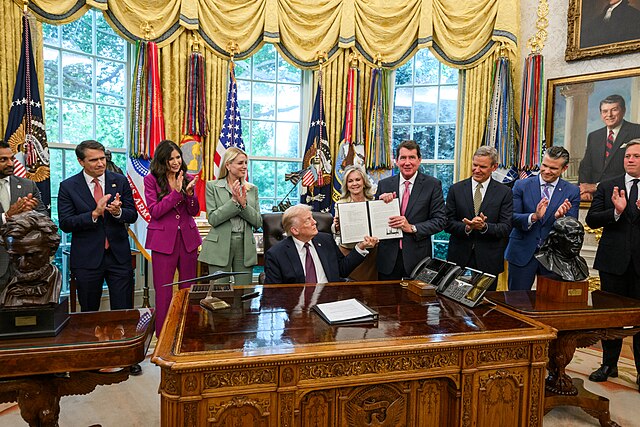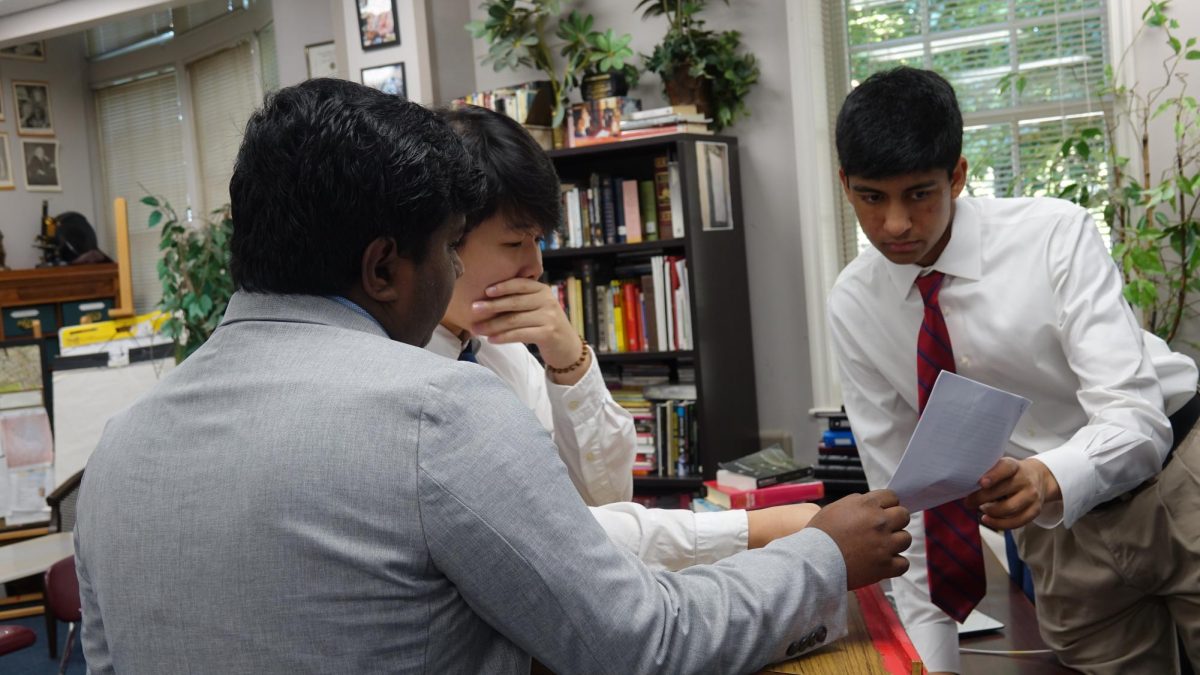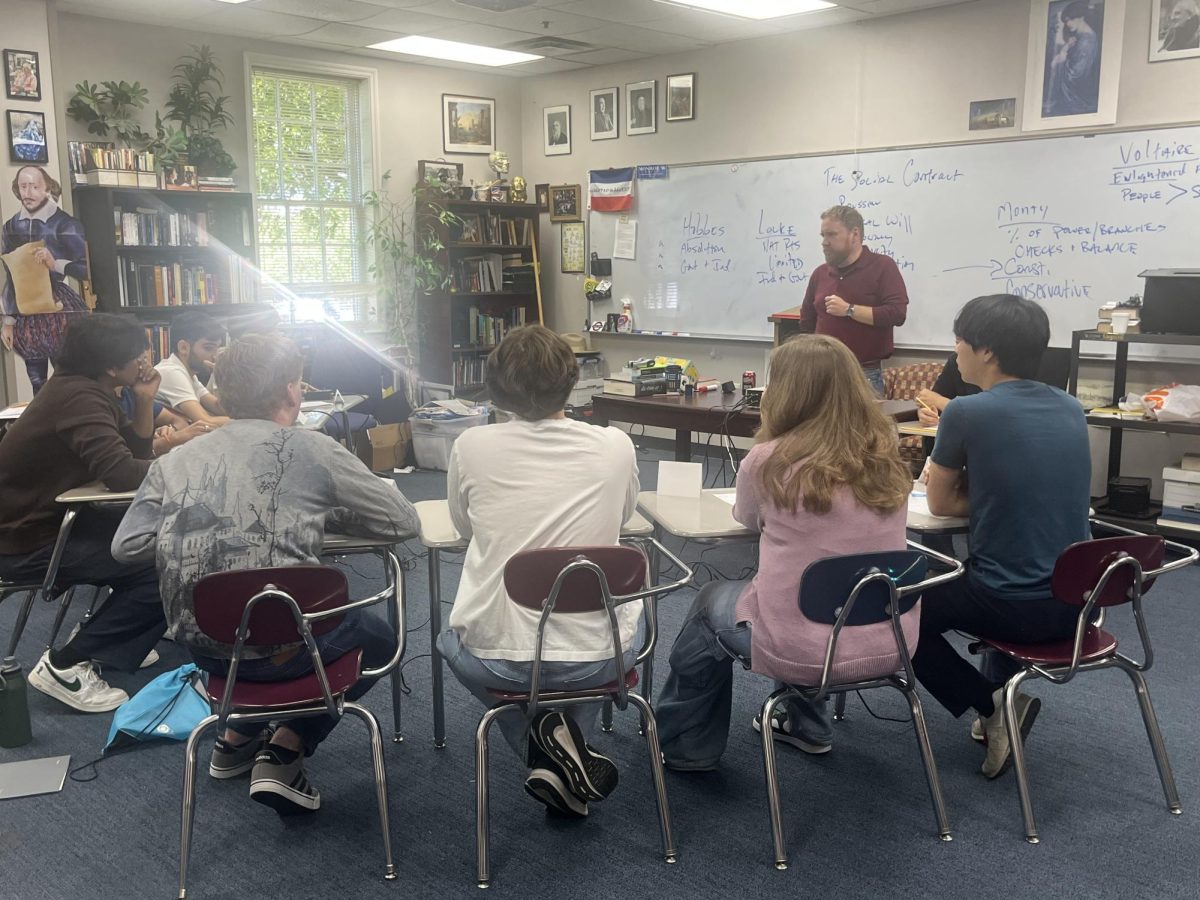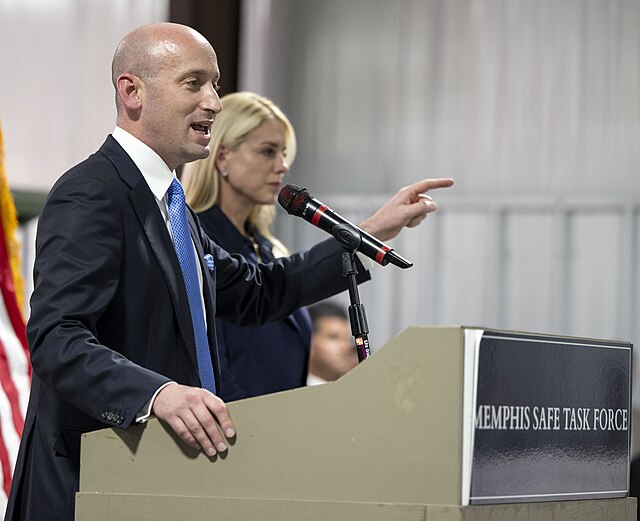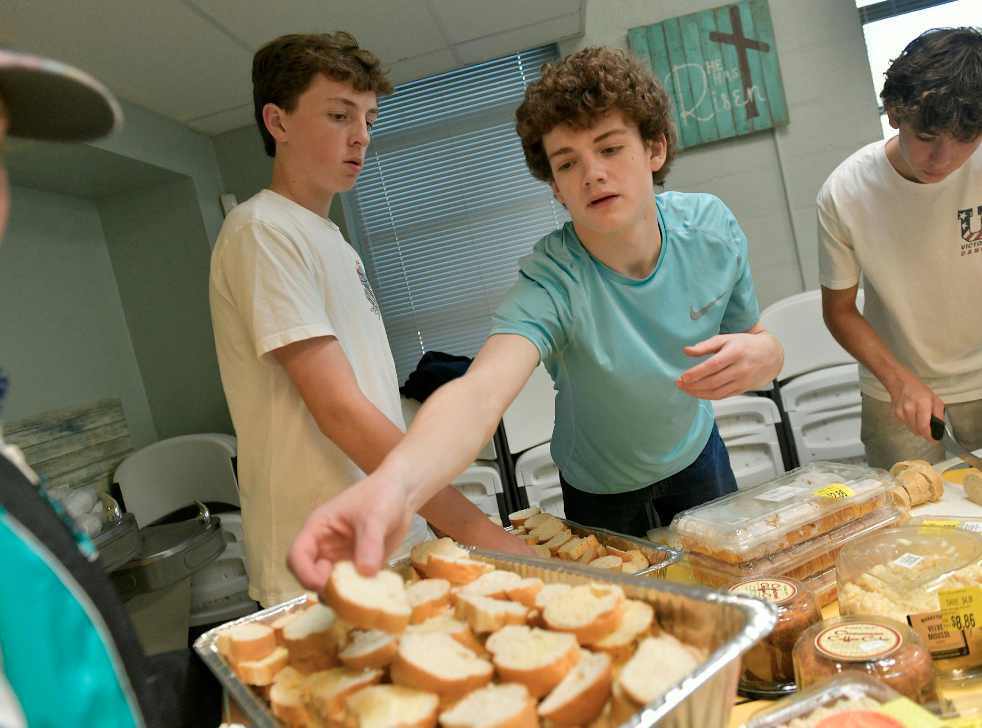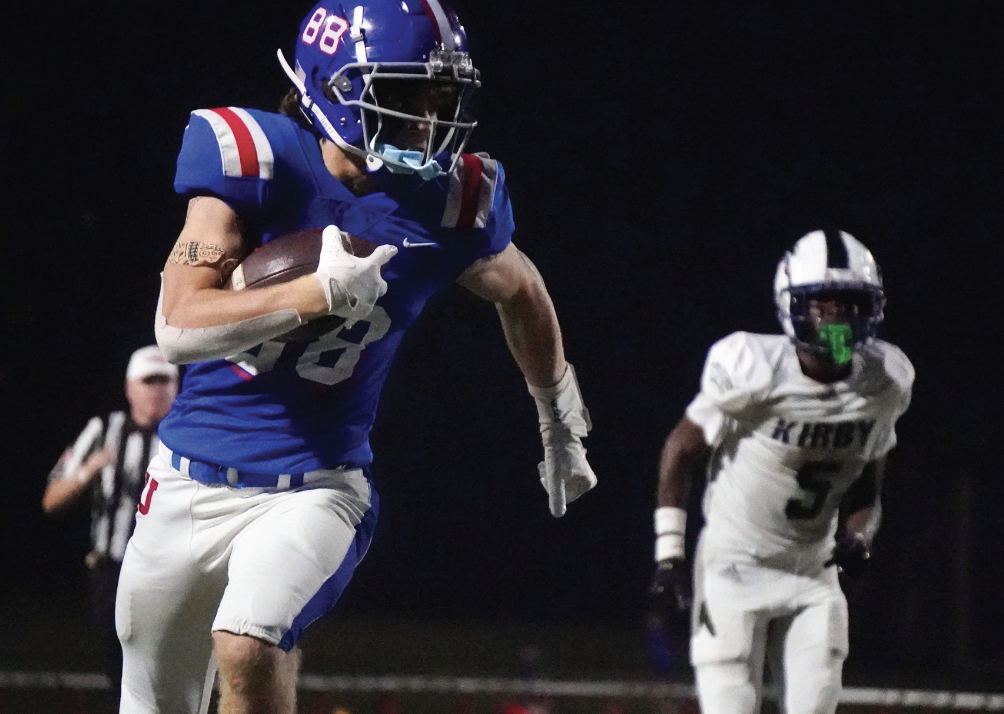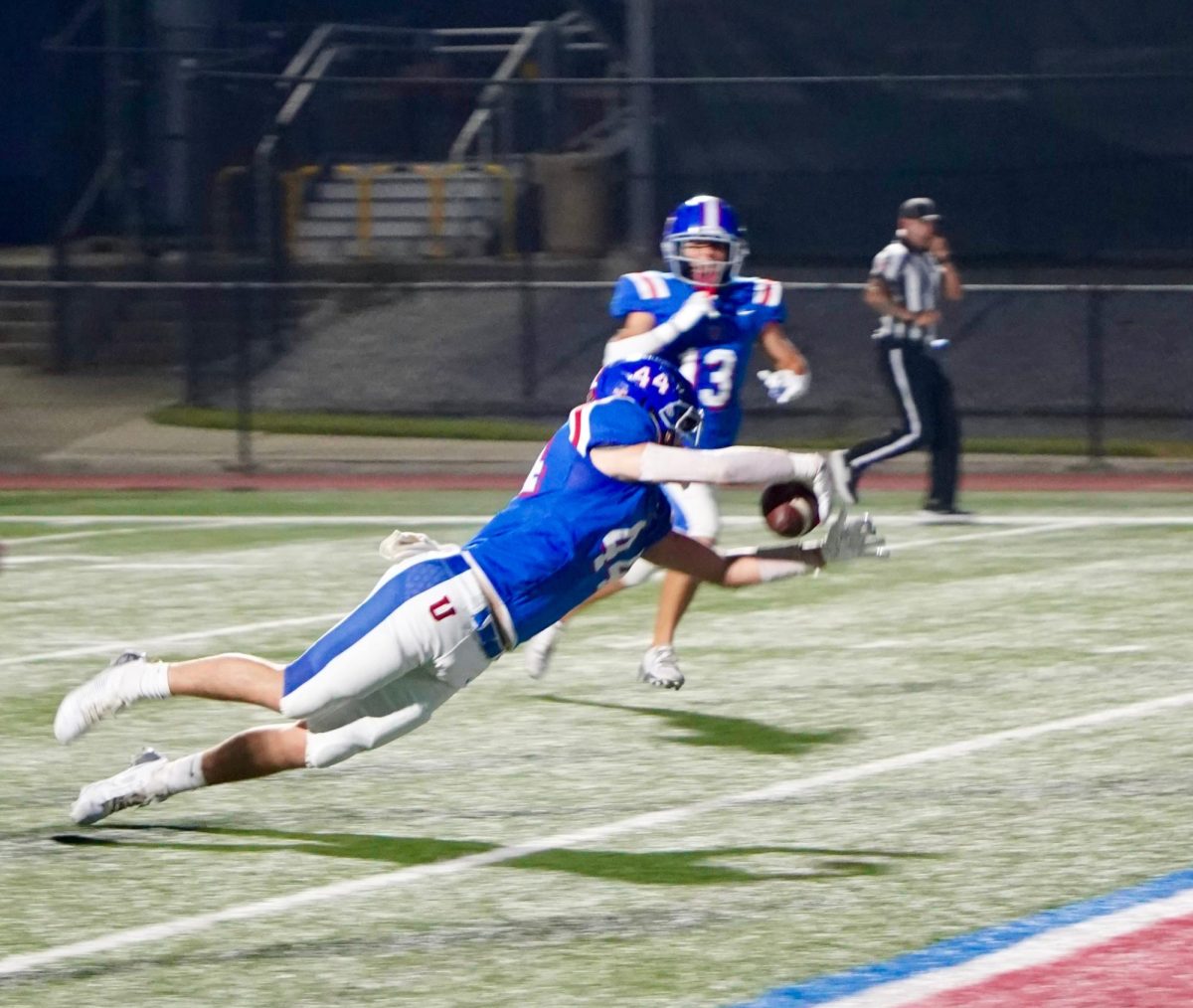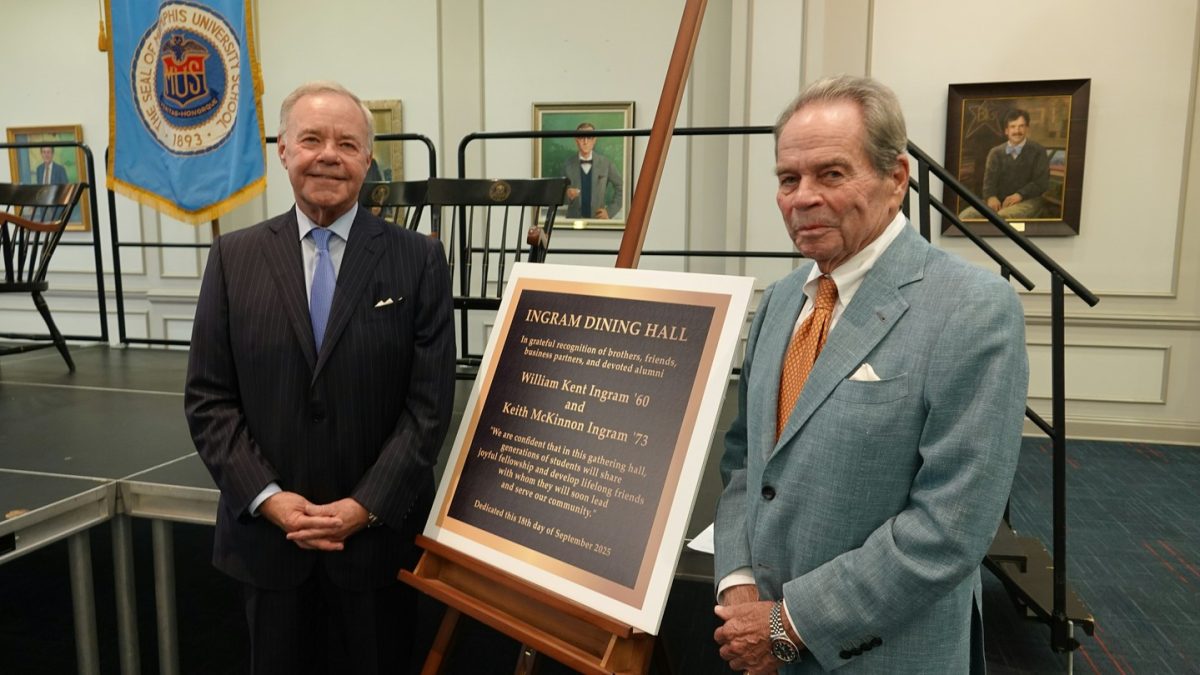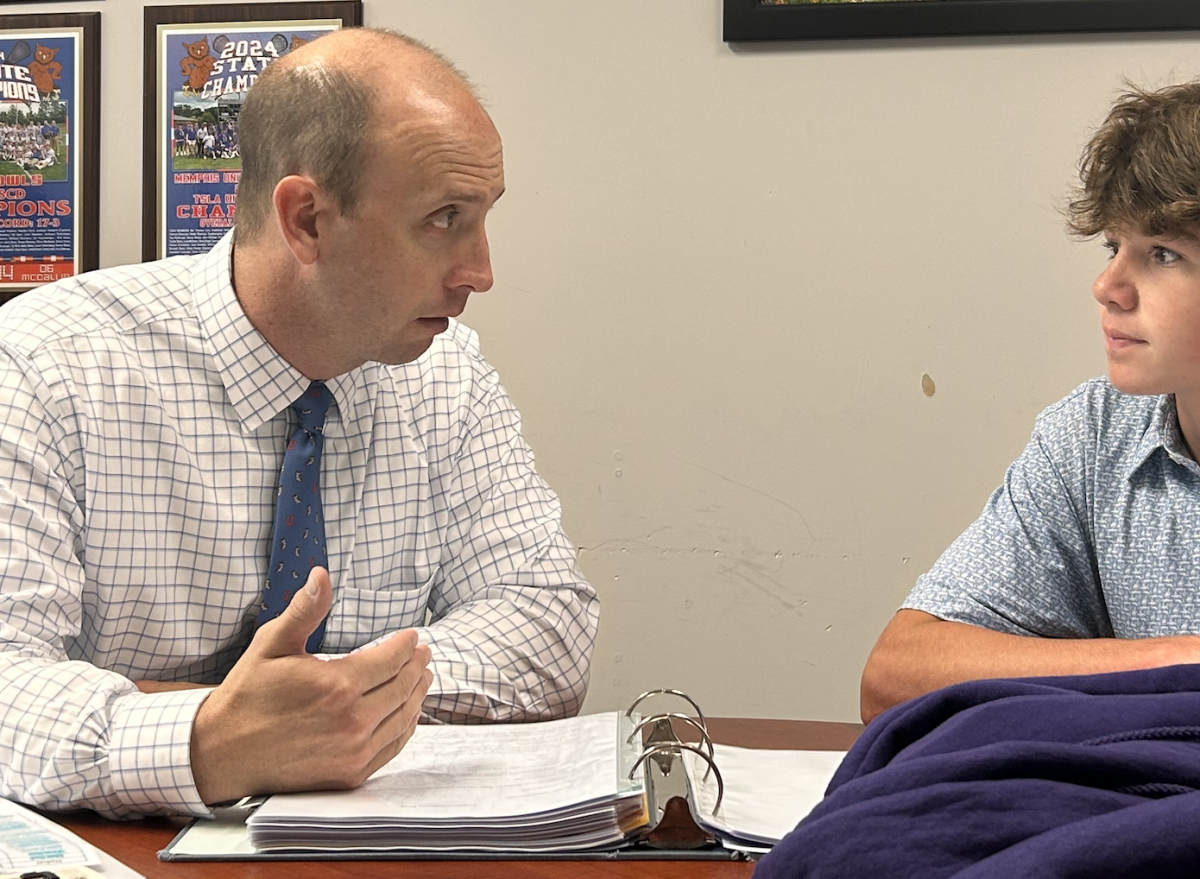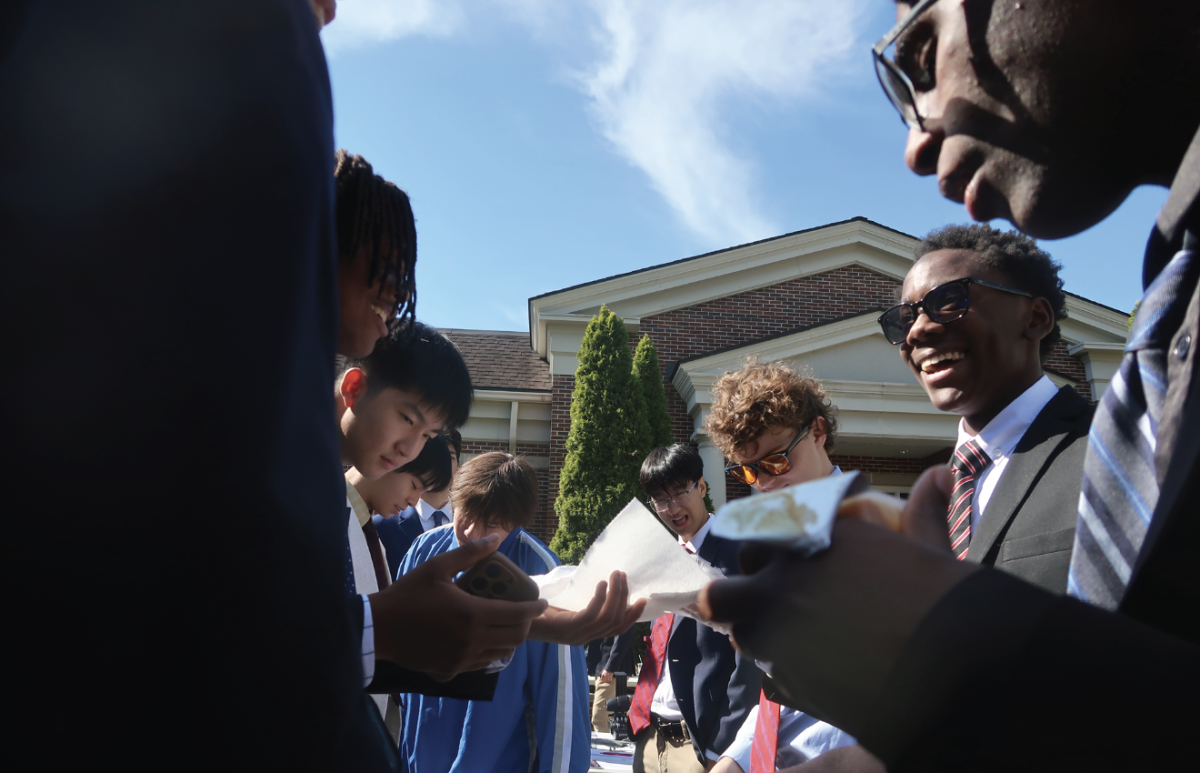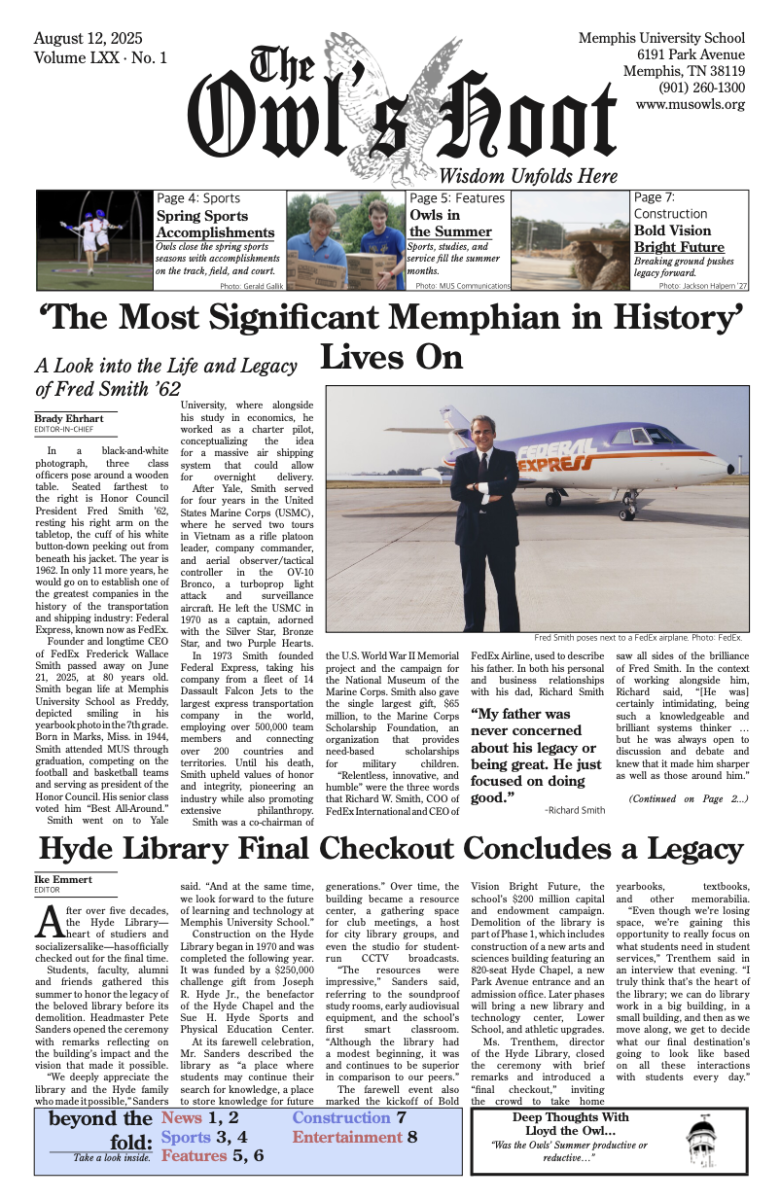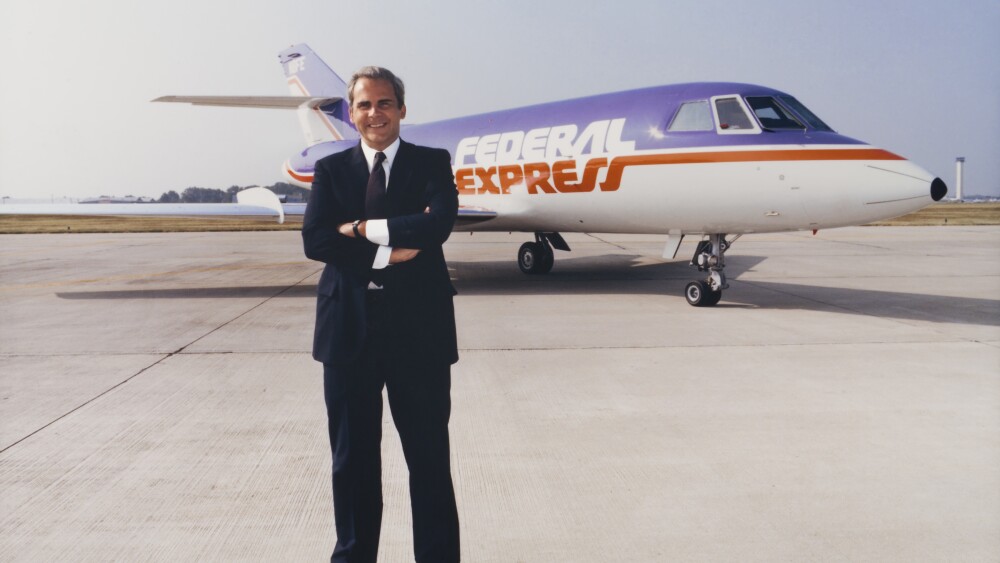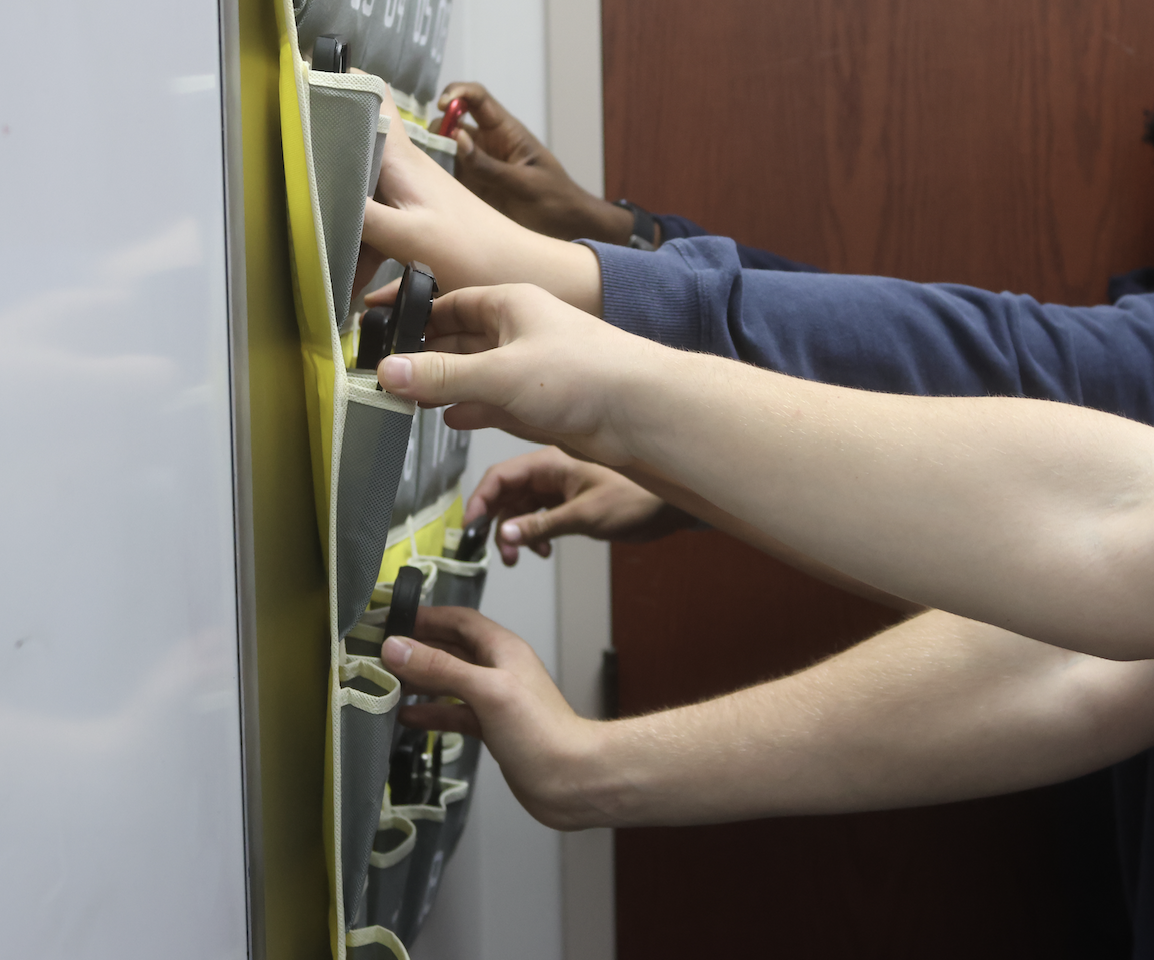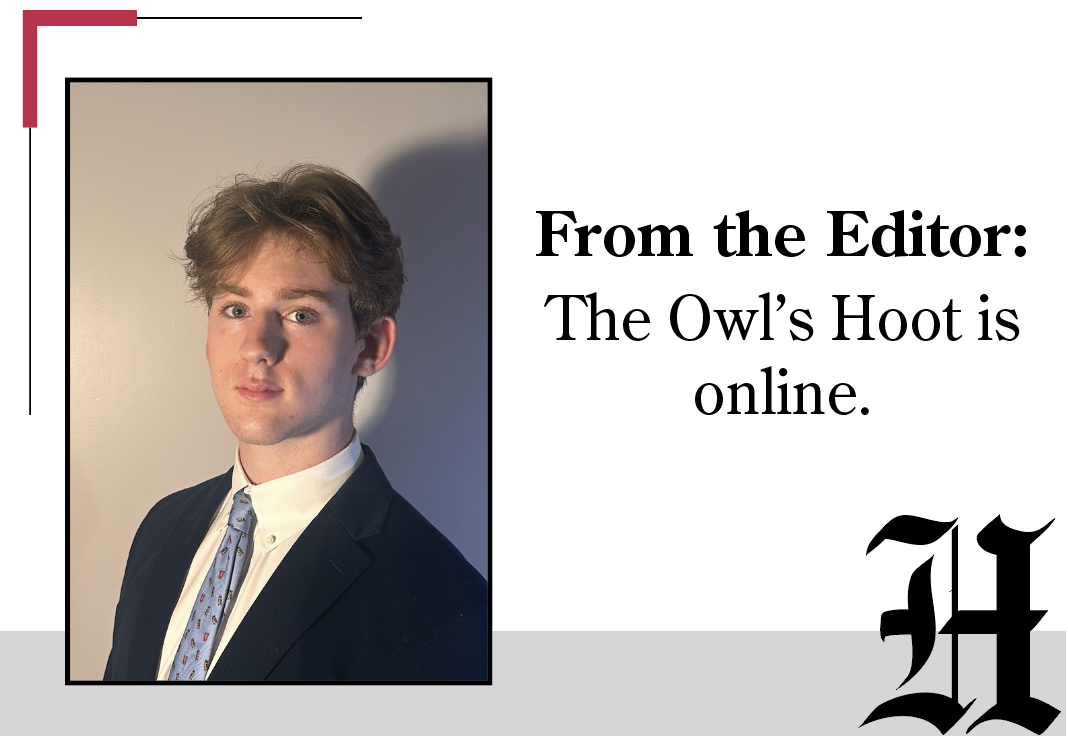In a black-and-white photograph, three class officers pose around a wooden table. Seated farthest to the right is Honor Council President Fred Smith ’62, resting his right arm on the tabletop, the cuff of his white button-down peeking out from beneath his jacket. The year is 1962. In only 11 more years, he would go on to establish one of the greatest companies in the history of the transportation and shipping industry: Federal Express, known now as FedEx.
Early Life
Founder and longtime CEO of FedEx Frederick Wallace Smith passed away on June 21, 2025, at 80 years old. Smith began life at Memphis University School as Freddy, depicted smiling in his yearbook photo in the 7th grade. Born in Marks, Mississippi in 1944, Smith attended MUS through graduation, competing on the football and basketball teams and serving as president of the Honor Council. His senior class voted him “Best All-Around.”
Smith went on to Yale University, where alongside his study in economics, he worked as a charter pilot, conceptualizing the idea for a massive air shipping system that could allow for overnight delivery.
After Yale, Smith served for four years in the United States Marine Corps (USMC), where he served two tours in Vietnam as a rifle platoon leader, company commander and aerial observer/tactical controller in the OV-10 Bronco, a turboprop light attack and surveillance aircraft. He left the USMC in 1970 as a captain, adorned with the Silver Star, Bronze Star and two Purple Hearts.
FedEx
In 1973 Smith founded Federal Express, taking his company from a fleet of 14 Dassault Falcon Jets to the largest express transportation company in the world, employing over 500,000 team members and connecting over 200 countries and territories. Until his death, Smith upheld values of honor and integrity, pioneering an industry while also promoting extensive philanthropy.
Smith was a co-chairman of the U.S. World War II Memorial project and the campaign for the National Museum of the Marine Corps. Smith also gave the single largest gift, $65 million, to the Marine Corps Scholarship Foundation, an organization that provides need-based scholarships for military children.
“Relentless, innovative, and humble” were the three words that Richard W. Smith, COO of FedEx International and CEO of FedEx Airline, used to describe his father. In both his personal and business relationships with his dad, Richard Smith saw all sides of the brilliance of Fred Smith. In the context of working alongside him, Richard said, “[He was] certainly intimidating, being such a knowledgeable and brilliant systems thinker … but he was always open to discussion and debate and knew that it made him sharper as well as those around him.”
One of his father’s methods of teaching and creation was “kaleidoscope thinking,” in which collaborative iteration allows a concept to come into clear focus. “My favorite part of the job was being his co-collaborator and sometimes sparring partner on these ideas he had, as he was truly an idea factory. We made one another better … in more recent years he became my best friend. We spoke every day.”
Fred Smith’s life lessons were just as impactful as his business decisions. Richard Smith explained that his father imbued in him values of “humility, prior preparation, leading from the front (not from the bunker).” His resilient outlook on life was among his dad’s most valuable attributes.
“[80 years of experiences] gave him an amazing perspective, and he often told me when things were hard or I had suffered some loss or defeat, ‘Bub, if that’s the worst thing that ever happens to you, you’ll be alright.’”
When asked what his father would say to MUS students, Richard Smith, father of MUS student Logan Smith ’27 said, “Fred Smith was not a man to sit on the sidelines and let life pass him by. Engage in the act of doing. Don’t be afraid to try new things or take risks. Be curious about the world around you. Remember that the only dumb question is the one you’re too afraid to ask. My father was never concerned about his legacy or being great. He just focused on doing good.”
Logan Smith described his grandfather as selfless and humble.
“With all the money he had, he still drove this old 2002 Chevy. He always wore this cheap watch … he never let money get to his head.” Fred Smith’s frugality and desire to spend money only when it most benefited others was reflected in one of his mantras, Logan Smith said. It was inscribed on the back of his watch. “‘Waste Not a Moment.’ He never wasted a moment. If he had time, he was going to get something done.”
Logan Smith recollected some of his fondest moments with his grandfather, including when visiting him at work. “[He would always] mute [his phone] and come down to say hi to me … step out of the most important board meetings no matter how busy he was.” He spoke about his grandfather’s humility, commending him for teaching him how to correctly prepare for studies and gamedays. In providing closing remarks, Logan said that his grandfather would want MUS students to “just focus on your path … help others when they need it. Just keep your head down and be a hard worker.”
Sixty-three years after his graduation from MUS, Fred Smith’s legacy still travels through these halls. Pictured perfectly frozen in time, a younger version of him looks down from his position in his class composite to the countless students going to class, studying and growing as he did.
Fred Smith–“the most significant Memphian in history,” as former mayor Jim Strickland titled him–was a man who truly never wasted a moment. He likely would hope the future leaders at MUS will do the same.

